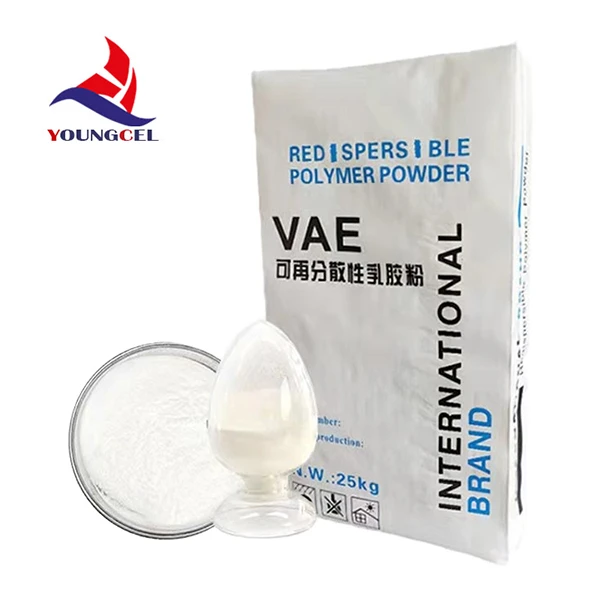The Versatility of Methyl Cellulose Applications and Benefits
Methyl cellulose is a cellulose derivative that has gained significant attention in various industrial and scientific applications due to its unique properties. Being a non-ionic, water-soluble polymer, methyl cellulose has found roles in food, pharmaceuticals, cosmetics, and construction materials. This article will explore the multifaceted applications of methyl cellulose and its advantages, particularly focusing on its role in enhancing product performance.
What is Methyl Cellulose?
Methyl cellulose is synthesized from natural cellulose, which is derived from plant cell walls. Through chemical modifications, hydroxyl groups on the cellulose backbone are replaced with methyl groups, resulting in a modified polymer with unique solubility characteristics. It is important to note that methyl cellulose is derived from renewable resources, making it an environmentally friendly choice compared to many synthetic polymers.
Applications of Methyl Cellulose
1. Food Industry Methyl cellulose is widely used as a thickening agent, emulsifier, and stabilizer in a variety of food products. It enhances the texture of sauces, soups, and dressings, providing a desirable mouthfeel without adding calories or fats. Moreover, its water-retention properties help maintain moisture in baked goods, thereby extending their shelf life. Notably, methyl cellulose is utilized in the production of gluten-free products, where its binding properties compensate for the absence of gluten.
2. Pharmaceuticals In the pharmaceutical realm, methyl cellulose serves as an excipient in tablet formulations and is often used in controlled-release medications. Its ability to form gels upon hydration allows for the effective delivery of active ingredients. Moreover, it is a key ingredient in ophthalmic preparations, such as eye drops, where its viscosity ensures that the medication remains on the surface of the eye, providing prolonged relief from dryness.
3. Cosmetics and Personal Care Products Methyl cellulose enhances the texture and feel of lotions, creams, and gels, making it a common ingredient in many cosmetic formulations. Its film-forming properties provide a protective barrier on the skin, helping to retain moisture. Additionally, it stabilizes emulsions, preventing the separation of oil and water phases in products like moisturizers and sunscreens.
4. Construction Materials The construction industry has also embraced methyl cellulose, particularly in the formulation of mortars, adhesives, and paints. Its water-retention properties allow for better workability and adherence in construction materials, improving the overall durability and longevity of the finished product. Methyl cellulose also acts as a thickener in paints, promoting smooth application and enhancing coverage.
cellulose methyl

Benefits of Methyl Cellulose
Methyl cellulose offers a range of benefits that make it a popular choice across various industries
- Non-toxic and Biodegradable Being derived from natural sources, methyl cellulose is non-toxic and poses minimal risk to human health and the environment. This makes it an ideal ingredient for products intended for consumption or application on skin.
- Versatile Solubility Methyl cellulose dissolves in cold water, forming a viscous gel, while remaining insoluble in organic solvents. This unique characteristic allows it to be used in diverse formulations.
- Stability Methyl cellulose exhibits stability under varying pH levels and temperatures, ensuring that products maintain their intended performance over time.
- Enhanced Texture and Performance Its thickening and gelling properties enhance the texture and sensory experience of food and cosmetic products, making them more appealing to consumers.
Conclusion
In summary, methyl cellulose is a remarkable polymer that has carved a niche in numerous industries due to its unique properties and versatile applications. From thickening food items and stabilizing pharmaceuticals to enhancing cosmetics and improving construction materials, methyl cellulose plays a vital role in product formulation. As industries continue to seek sustainable and functional ingredients, the relevance of methyl cellulose is likely to grow, paving the way for innovations that harness its capabilities while promoting environmental responsibility.
-
Rdp Powder: Key Considerations for Wholesalers in the Building Materials IndustryNewsJul.08,2025
-
Key Considerations for Wholesalers: Navigating the World of Hpmc - Based ProductsNewsJul.08,2025
-
Hpmc Detergent: Key Considerations for WholesalersNewsJul.08,2025
-
Key Considerations for Wholesalers: China Hpmc For Tile Adhesive, Coating Additives, Concrete Additives, and MoreNewsJul.08,2025
-
Crucial Considerations for Wholesalers: Navigating the World of Construction MaterialsNewsJul.08,2025
-
Key Considerations for Wholesalers Sourcing Additive For Cement, Additive For Concrete, Additive For Putty from Additive Manufacturer Shijiazhuang Gaocheng District Yongfeng Cellulose Co., Ltd.NewsJul.08,2025




